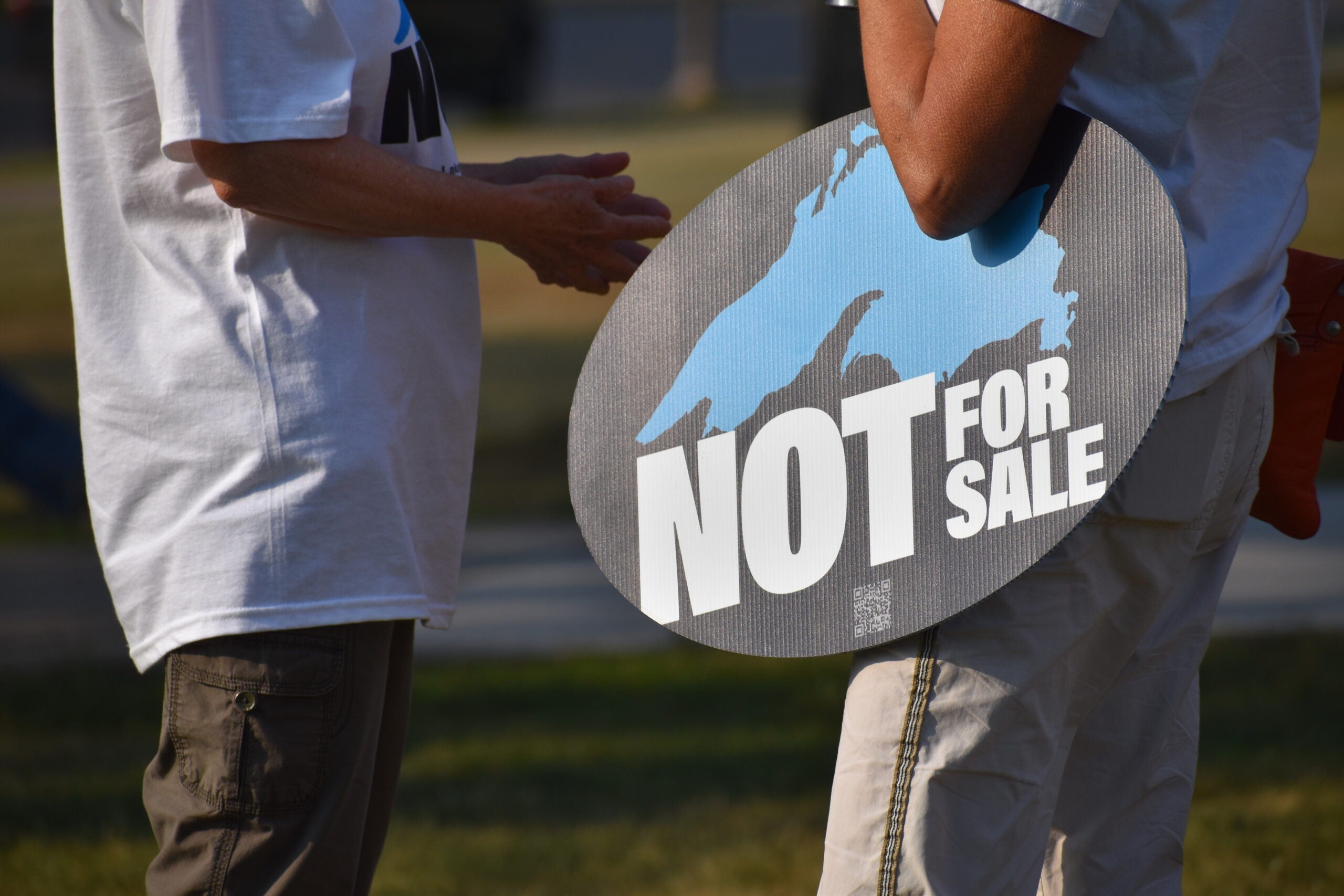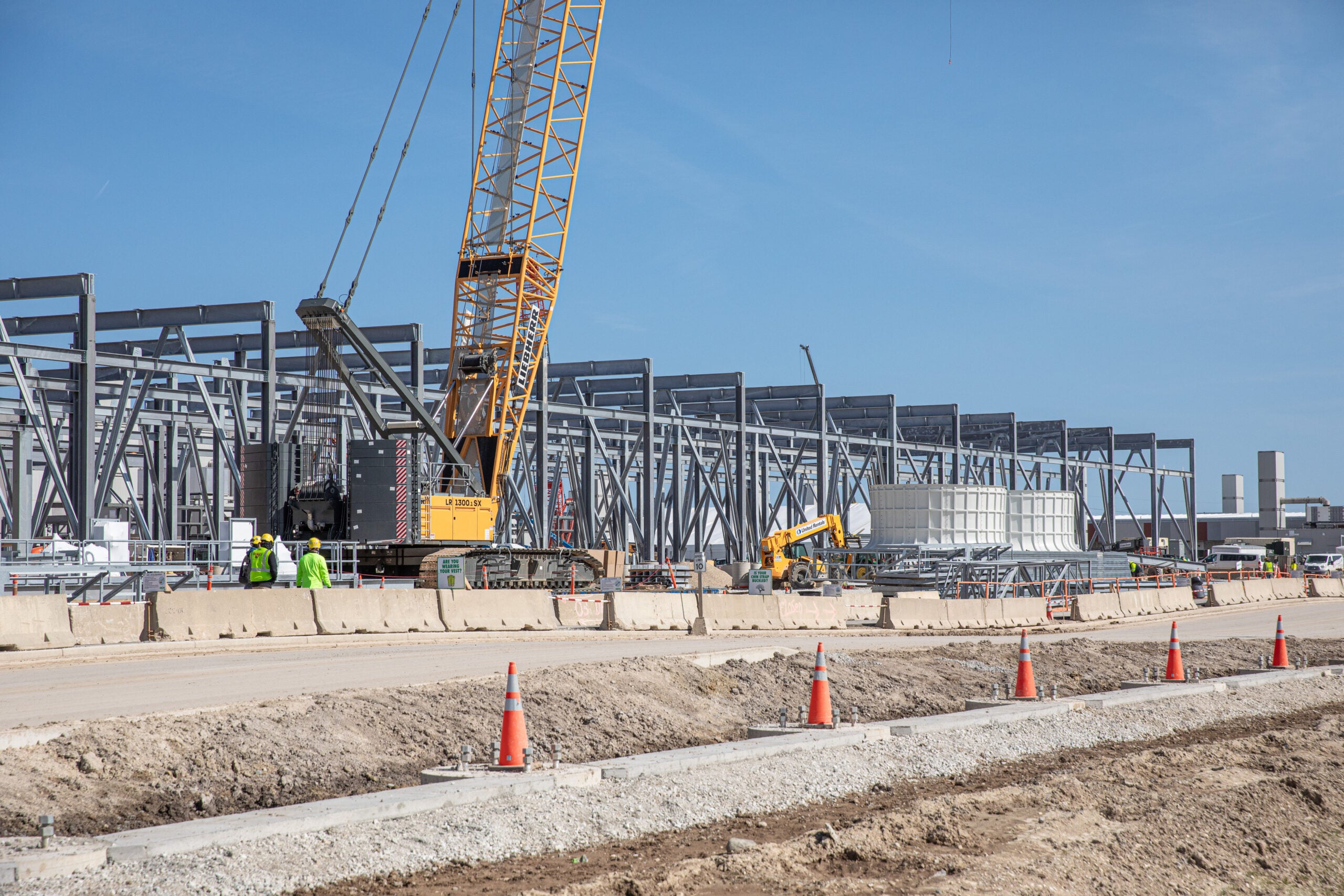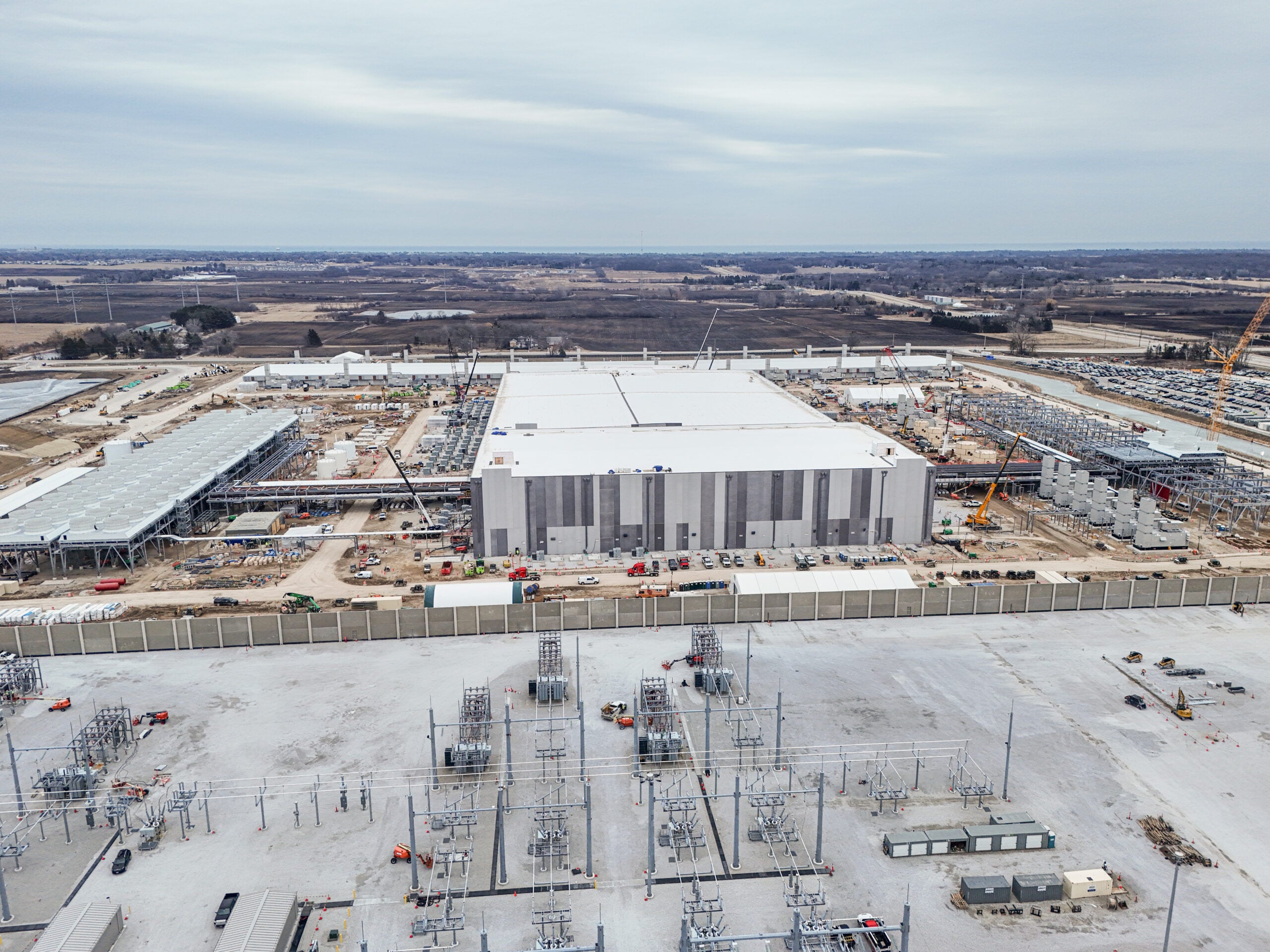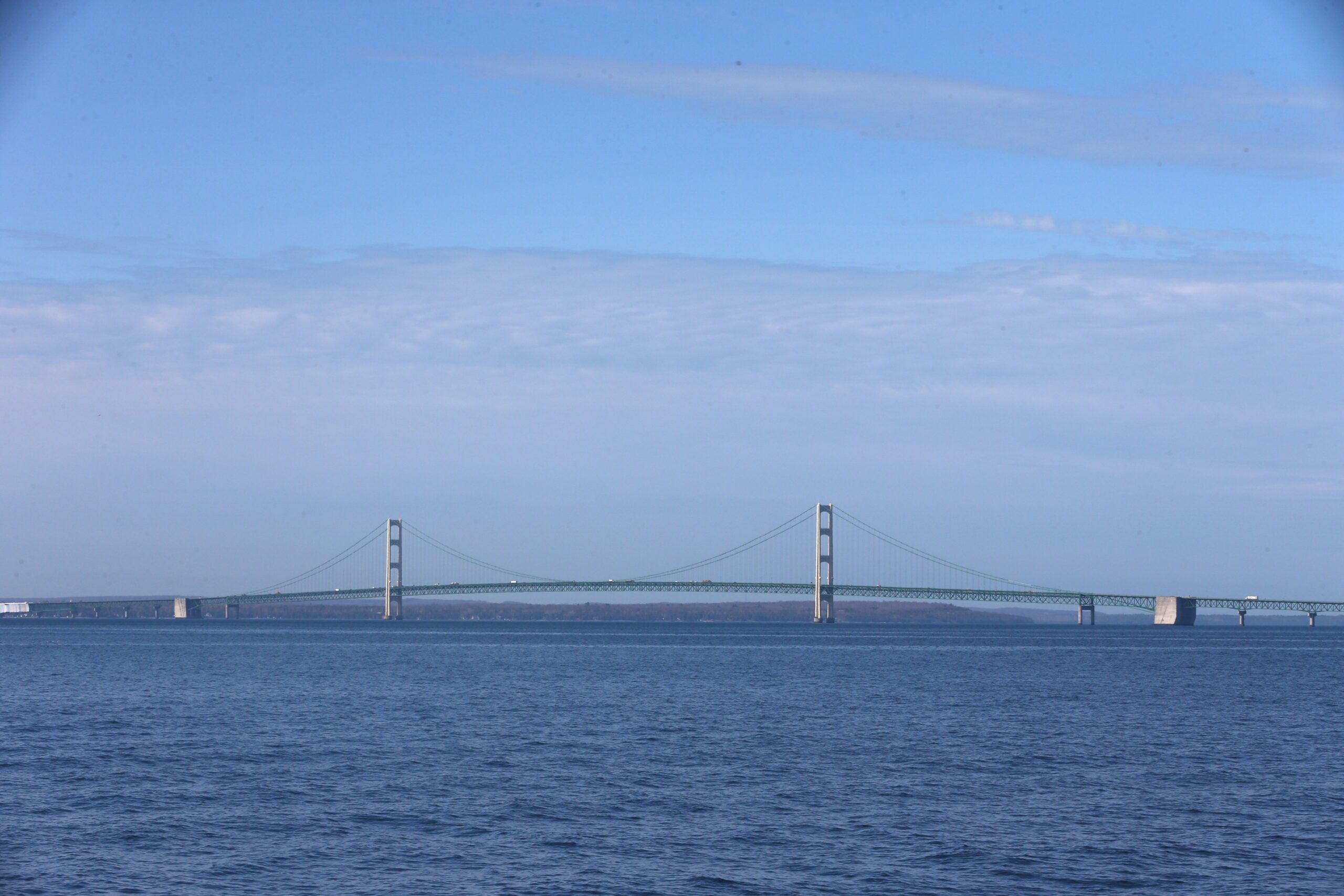A fight is brewing in northern Wisconsin over a proposal to bottle and sell water from a well near Lake Superior.
A Duluth-based owner of a startup wants to sell bottled water under the name Kristle KLR. Opponents of the plan fear allowing the business to move forward would exploit a loophole in a landmark agreement barring water diversions from the Great Lakes — and could threaten water resources in the region.
On Thursday, a five-member appeals board in Bayfield County unanimously upheld the denial of a special land use permit for Kristle Majchrzak and Robert Glau, who seek to harvest and sell water from their property in the Town of Clover.
News with a little more humanity
WPR’s “Wisconsin Today” newsletter keeps you connected to the state you love without feeling overwhelmed. No paywall. No agenda. No corporate filter.
Minneapolis attorney Jack Perry, who represents Glau and Majchrzak, said they will appeal the decision in Bayfield County Circuit Court.
“These people are entitled to their permit because you don’t have jurisdiction,” Perry told the board.
Perry argued the Wisconsin Department of Natural Resources has sole permitting authority over groundwater wells, including piping and storage of water from the well. He said the county could be exposed to more than $250,000 in damages and legal fees for denying the proposal.
The town’s attorney, Max Lindsey, contends the county is exercising its authority over land use. He argued the proposal doesn’t qualify for the permit because it lies in an area that is zoned for residential development and associated recreational use.
“They applied for a permit that was denied, and now they’re trying to confuse the issues and threaten their way through this,” said Lindsey.
The project’s opponents say granting the permit would allow Majchrzak and her father to get around a sweeping agreement about water use in the Great Lakes basin.
The Great Lakes Compact signed by eight Great Lakes governors in 2008 prevents water diversions outside the Great Lakes basin with limited exceptions. The compact allows water to be removed from the Great Lakes basin in containers of 5.7 gallons or less.
Majchrzak applied for a conditional use permit in February for her company Kristle KLR. She’s proposing to build underground storage tanks that would capture water from an artesian well flowing at a rate of roughly 5,000 gallons per day in the Town of Clover, more commonly known as Herbster. The water would be collected by tanker trucks and transported off site to be bottled at a facility in Superior, which would then be sold primarily in Wisconsin and Minnesota.
The company has become the target of tribes, environmental groups and grassroots citizens group Lake Superior Not For Sale. The county’s appeals board received 1,692 letters in opposition to the project, including from the Red Cliff Band of Lake Superior Chippewa, Herbster and surrounding communities. They fear the proposal would threaten the sustainability of water resources and tribal treaty rights, adding the proposal has not undergone a complete environmental review.
Only one person wrote a letter in support of the project. Kristle KLR maintains their artesian well is accessing a confined aquifer that would not harm the surrounding water table, wetlands or Lake Superior.
Red Cliff tribal elder Carolyn Gougé urged Majchrzak to reconsider the proposal during a public hearing last Thursday.
“Our artesian water, we need that,” said Gougé. “We need that because ultimately that’s going to go in Lake Superior, and that’s what flourishes and nurtures us.”
Herbster residents voiced fears the project would open Pandora’s box and allow other large corporations to harvest and sell water in the region.
Dana Churness is a Herbster resident and a member of Lake Superior Not For Sale, which filed a brief in opposition to the project on behalf of its more than 2,200 members.
“There is nothing that provides us reassurance as a community that she does not have plans to increase the capacity of her project and or turn around and sell her project to any number of corporations like Coca-Cola or Nestle, which we know from previous situations can financially bury any small town and or county with litigation and takeover,” said Churness.
Majchrzak did not return a request seeking comment on the proposal and the board’s decision. Her company’s website said they have no intention of selling the business.
“Because of the relatively small amount of water that we intend to collect without pumping from the aquifer each year, entities such as Nestle would have little interest in this business,” the website reads. “These large companies are looking for massive, high output water sources to pump in excess of (hundreds or thousands) of gallons per minute. This is a practice we are completely against.”
Kristle KLR is not the first company to express interest in bottling Wisconsin groundwater. In 2000, bottled water company Perrier abandoned plans to pump groundwater in Waushara County after encountering opposition to its proposal.
More recently in 2015, Trygve Solberg, who started Trig’s grocery stores in northern Wisconsin, proposed shipping water from the Vilas County community of Presque Isle to a bottling plant in Minocqua. He moved operations to Marenisco, Michigan, after learning the proposal would violate the Great Lakes Compact because it would’ve shipped water outside the Lake Superior basin to be bottled.
The compact’s bottled water provision ignited emotional debate while the agreement was being negotiated, said Peter Annin, author of the book “Great Lakes Water Wars.” Annin said Ohio and Indiana threatened to abandon the compact if bottled water was banned.
Negotiators highlighted that the bottled water provision was the minimum standard states would be required to adopt, noting states could pass more stringent water regulations.
Jim Olson, a Michigan environmental attorney who has battled Nestle in court, said the provision creates a slippery slope for whenever bottled water is sold in the Great Lakes basin.
“We have sort of a strange situation where you can take a lot of water out of the basin in small containers,” said Olson. “There really is no limit.”
Nestle extracted billions of gallons of water in Michigan from 2005 to 2015. The company’s groundwater wells pump anywhere from 250 gallons to 500 gallons per minute. In northern Wisconsin, Majchrzak’s proposal would draw far less water daily from an artesian well that flows at a rate of 3.5 gallons per minute, according to a report from the company’s engineering consultant. She plans to transport one to two tanker trucks of water daily to Superior for bottling.
The amount of water proposed for withdrawal from the northern Wisconsin well is very small compared to other water diversions across the Great Lakes. Chicago draws around 2 billion gallons of water each day.
“The idea behind the compact negotiators was that they didn’t think that you could drain the Great Lakes through bottled water alone, and that these were, in many cases, issues for local watersheds and local leaders to determine whether or not any individual water bottling operation might have an impact on fragile, local cold-water ecosystems,” said Annin.
While a single project may not harm the lakes, opponents fear the proposal would set a dangerous precedent at a time when concerns over water scarcity are amplified as the Western United States is witnessing the worst drought on record driven in part by climate change. The water-rich area of northern Wisconsin is not immune to the dry spell as landowners and farmers are struggling with moderate drought conditions in northern Bayfield County.
“Anybody with an artesian water source, which is many of my neighbors, could do the same thing,” said Churness. “Then, we have a cumulative impact that is very, very unknown.”
Wisconsin Public Radio, © Copyright 2025, Board of Regents of the University of Wisconsin System and Wisconsin Educational Communications Board.






